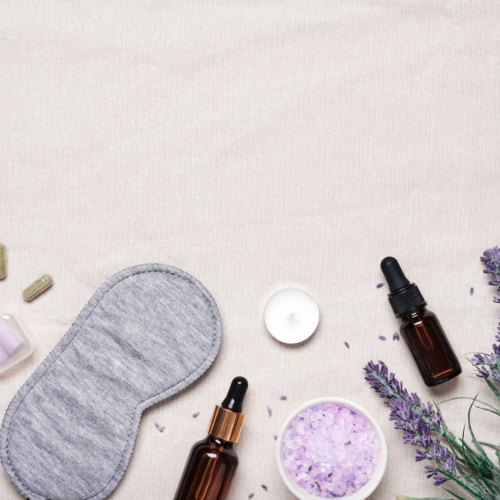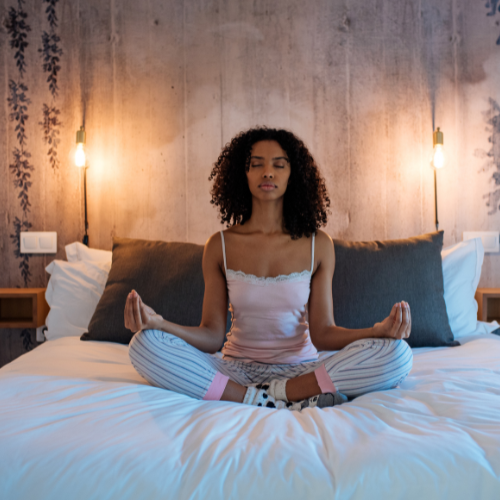- admin
- June 12, 2024
- No Comments
Sleep Health
Are you having a hard time sleeping? Sleep health is important for overall health, but a lot of people have trouble getting good sleep. This article gives you tips and ideas on how to get better sleep and deal with sleep disorders so you can have restful nights and feel refreshed when you wake up.
Understanding Sleep Health
The amount and quality of sleep you need to keep your body and mind healthy is called sleep health. Getting enough sleep is good for your health, your mood, your memory, and your brain. On the other hand, not getting enough sleep can cause a number of health problems, such as a weakened immune system, weight gain, and a higher risk of developing chronic diseases.


The Importance of Sleep
Sleep is important for many bodily functions, such as:
- Physical Restoration: Repairs tissues, muscles, and cells.
- Cognitive Function: Enhances memory, learning, and problem-solving skills.
- Emotional Regulation: Helps manage stress and emotional responses.
- Immune System Support: Strengthens the body’s defense against illnesses.
Tips for Improving Sleep Quality
Getting good sleep means making changes to your habits that help you sleep regularly and restfully. Here are some strategies that work:
1. Establish a Consistent Sleep Schedule
Your body’s internal clock works better when you go to bed and wake up at the same time every day, even on the weekends. Being consistent can help you sleep better and keep your sleep-wake cycle strong.
2. Create a Relaxing Bedtime Routine
Do things that make you feel calm before bed to tell your body it’s time to relax. Think about:
- Reading a Book: Choose a relaxing book over electronic devices.
- Taking a Warm Bath: Helps relax your muscles and prepare for sleep.
- Practicing Meditation or Deep Breathing: Reduces stress and promotes relaxation.
3. Optimize Your Sleep Environment
Make your room more sleep-friendly by:
- Keeping the Room Cool: Maintain a comfortable temperature between 60-67°F (15-19°C).
- Reducing Noise: Use earplugs or white noise machines to block disruptive sounds.
- Blocking Light: Use blackout curtains or an eye mask to create a dark environment.
4. Limit Exposure to Screens
The blue light that computers, phones, and tablets give off can stop your body from making melatonin, a hormone that controls sleep. At least an hour before bed, stay away from screens.
5. Be Mindful of Food and Drink
What you eat or drink before bed can affect how well you sleep:
- Avoid Caffeine and Nicotine: Both are stimulants that can keep you awake.
- Limit Alcohol: While it may make you sleepy initially, alcohol can disrupt your sleep cycle.
- Avoid Heavy Meals: Eating large meals late at night can cause discomfort and affect your sleep.


Strategies for Managing Sleep Disorders
If you have a sleep disorder, these tips can help you deal with your symptoms and get better sleep:
1. Practice Good Sleep Hygiene
Getting into habits that help you sleep well is part of sleep hygiene. Besides the tips above, you might also want to think about the following:
- Regular Exercise: Do some light exercise every day, but don’t do anything too intense right before bed.
- Limit Naps: If you need to nap, don’t take more than 20 to 30 minutes, and don’t nap late in the day.
2. Cognitive Behavioral Therapy for Insomnia (CBT-I)
CBT-I is a structured program that helps people figure out what thoughts and actions are making their sleep problems worse and change them. It is thought to be one of the best ways to treat long-term insomnia.
3. Use Sleep Aids Wisely
Prescription and over-the-counter sleep aids can be helpful, but they should only be used for a short time at a time. Before taking any sleep aid, you should always talk to a doctor or nurse to find out about any possible side effects and dependencies.
4. Address Underlying Health Issues
Sleep problems can be caused by things like sleep apnea, restless legs syndrome, and long-term pain. Taking care of these conditions with medicine and changes to your lifestyle can help you sleep better.
Natural Remedies for Better Sleep
Using natural remedies can also help you sleep better. You can do any of these:
1. Herbal Teas
Chamomile, valerian root, and lavender are some of the herbal teas that can help you relax and fall asleep.
2. Aromatherapy
Using a diffuser with essential oils like lavender or cedarwood can help you relax and fall asleep.
3. Supplements
Taking melatonin supplements can help you keep your sleep-wake cycle in check. Taking magnesium supplements may also help you relax and sleep better. Before starting any supplements, talk to your doctor or nurse.
Conclusion
Getting better sleep and taking care of sleep disorders are very important for your health and well-being as a whole. You can get better sleep and live a healthier life by sticking to a regular sleep schedule, making a relaxing bedtime routine, making sure your sleep environment is perfect, and dealing with sleep disorders in a healthy way. Start using these tips right away to see how good sleep can change your life.







